The average cost of Stomach Cancer Treatment in Herzliya approximately starts from USD 26000
Treatment cost
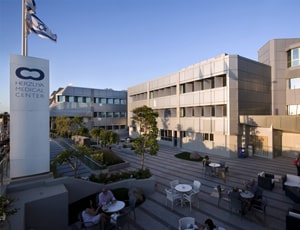
Apart from in-detail treatment procedures available, Herzliya Medical Center located in Herzliya, Israel has a wide variety of facilities available for International Patients. Some of the facilities which are provided by them are Accommodation, Airport Transfer, Interpreter, SIM, TV inside room. Also listed below are some of the most prominent infrastructural details:

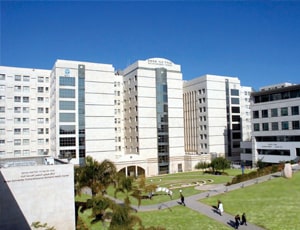
Rabin Medical Center located in Petah Tikva, Israel is accredited by JCI. Also listed below are some of the most prominent infrastructural details:
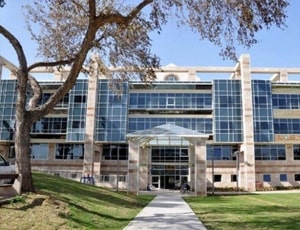
Kaplan Medical Centre located in Rehovot, Israel is accredited by JCI. Also listed below are some of the most prominent infrastructural details:
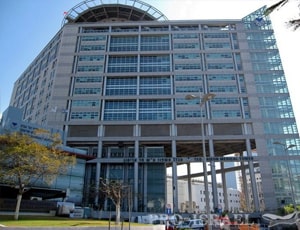
Tel Aviv Sourasky Medical Center -Ichilov Hospital located in Tel-Aviv, Israel is accredited by JCI. Also listed below are some of the most prominent infrastructural details:
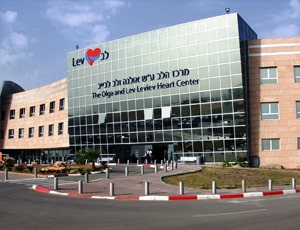
Sheba Medical Center located in Tel-Hashomer, Israel is accredited by JCI. Also listed below are some of the most prominent infrastructural details:
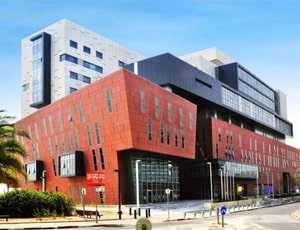
Assuta Hospital located in Tel-Aviv, Israel is accredited by JCI. Also listed below are some of the most prominent infrastructural details:
Stomach cancer, also known as gastric cancer, is the fifth most common cancer worldwide. This disease is a result of the growth of cancerous and malignant cells in the inner lining of the stomach.
Stomach cancer does not grow overnight as this disease usually grows slowly over many years. Some pre-cancerous changes take place before true cancer actually develops. But these early changes rarely result in any symptoms and therefore, often go undetected in the early stage when it is most easy to treat it.
Gastric cancer can grow through the wall of the stomach and invade nearby organs. It can easily spread to the lymph vessels and lymph nodes. In an advanced stage, it can travel through the bloodstream and spread or metastasize to organs such as the liver, lungs, and bones. Usually, people diagnosed with stomach cancer have either experienced metastasis already or eventually develop it.
Stomach cancer should not be confused with other cancers in the abdomen or esophageal cancer. Some other cancers can also occur in the abdomen, including cancer of the large and small intestine, liver or pancreas. These cancers may have different symptoms, outlooks, and options for treatment.
Some other types of stomach cancers include squamous and small cell carcinoma and leiomyosarcoma. These cancers are very rare.
There is no single, definite cause behind stomach cancer. However, several stomach cancer risk factors have been identified that could potentially lead to the formation to a tumor in the stomach. Some of these stomach cancer causes or risk factors include:
There can be several early stomach cancer symptoms. However, the signs of stomach cancer could be present because of some other underlying condition as well. Unfortunately, this is the main reason why it is difficult to make a stomach cancer diagnosis at an early stage.
Some of the early stomach cancer symptoms may include:
But just experiencing indigestion or heartburn after a meal does not mean that you have cancer. Although, if you experience these symptoms a lot, talk to your doctor, who can decide whether to conduct further tests or not.
As advanced gastric cancer grow, you may experience more serious signs of stomach cancer, including the following:
There are many options for stomach cancer treatment. Your specialist will choose the most appropriate treatment plan for you, depending on the stage of your cancer.
Most often, a combination of the following stomach cancer treatment options is used to remove tumor:
Stage 0 stomach cancer treatment: It is mostly treated with the help of an endoscopic surgery.
Stage 1 stomach cancer treatment: It is mostly treated with the help of an endoscopic surgery, followed up with a few session of chemotherapy. Sometimes, the surgeon may advise you to undergo a few session of chemotherapy before the surgery as well.
Stage 2 stomach cancer treatment: Surgery is the main treatment option followed by chemotherapy. If you decide against the surgery, a combination of chemotherapy and radiotherapy may be used.
Stage 3 stomach cancer treatment: A few cycles of chemotherapy are conducted before the surgery, followed up with a surgery. Following the surgery, a few cycles of chemotherapy are repeated, followed by radiation therapy.
Stage 4 stomach cancer treatment: Chemotherapy is the main treatment option for such patients. A surgery can be conducted to control the symptoms. Radiotherapy could be used if needed to relieve symptoms.
Recovery after stomach cancer treatment can take a long time. You may need special palliative care to manage the discomforting symptoms such as extreme pain. With constant support from the doctors, friends, nurses and family members, the health eventually feels better and you are able to experience an improved quality of life.
You may not be able to eat properly or by your own immediately after the surgery. However, you are able to return back to your normal routine in a few days. Planning and managing regular chemotherapy visits after the surgery can be difficult.
Discuss with your doctor about specific side effects that you are likely to face after chemotherapy. The doctor will give you specific medications that will help relieve specific symptoms such as nausea, weakness, vomiting, joint pain, and headache.
Ask your healthcare adviser for the best multiple options and choose the one that meets your expectations
The average cost of Stomach Cancer Treatment in Herzliya starts from $26000. While there are wide range of hospitals offering Stomach Cancer Treatmentation, international patients should always seek JCI-Certified Hospitals in Herzliya for the best results.
The cost of Stomach Cancer Treatment in Herzliya may differ from one medical facility to the other. The cost quoted by some of the best hospitals for Stomach Cancer Treatment in Herzliya generally covers the pre-surgery investigations of the patient. The treatment cost usually includes the expenses related to hospitalization, surgery, nursing, medicines, and anesthesia. A prolonged hospital stay due to delayed recovery, new diagnosis and complications after surgery may increase the cost of Stomach Cancer Treatment in Herzliya.
Stomach Cancer Treatment in Herzliya is offered by multiple hospitals across the country. Some of the most renowned hospitals for Stomach Cancer Treatment in Herzliya include the following:
After Stomach Cancer Treatment in Herzliya, the patient is supposed to stay in guest house for another 23 days. This is important to ensure that the surgery was successful. During this time, control and follow-up tests take place to check for medical fitness.
While Herzliya is considered to be one of the best destinations for Stomach Cancer Treatment owing to the standard of Hospitals, and expertise of doctors Some of the other destinations that are popular for Stomach Cancer Treatment include the following:
Apart from the Stomach Cancer Treatment cost, there are a few other daily charges that the patient may have to pay. These are the charges for daily meals and accommodation outside the hospital. The per day cost in this case may range from 75 USD.
After Stomach Cancer Treatment surgery, the patient is supposed to stay for about 5 Days in the hospital for recovery and monitoring. This time frame is important for the patient to recover properly and feel comfortable after the surgery. With the help of several tests, it is determined that the patient is doing fine after the surgery and is okay to be discharged.
There are more than 1 Hospitals that offer Stomach Cancer Treatment in Herzliya. These hospitals have propoer infrastructure as well as offer good quality of services when it comes to Stomach Cancer Treatment surgery. Apart from good services, the hospitals are known to follow all standard and legal guidelines as dictated by the local medical affairs body or organization.
Some of the most sought after doctors for Stomach Cancer Treatment in Herzliya are: